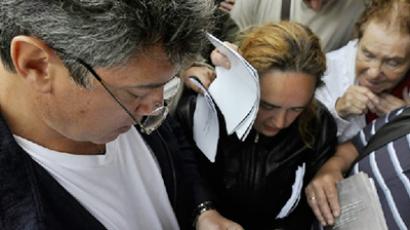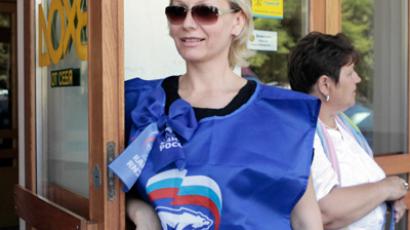‘United Russia united enemies’
By having so much power and TV coverage, being the party of the president and prime minister, the United Russia party in a way united their enemies – that is how journalist Ivan Zasursky explains the lower score for the party in Sunday’s vote.
There has been speculation on what caused the ruling party to attract fewer votes this time than they did back in 2007, when around 64% of ballots were cast in their favor.“It looked as if they had victory in the bag, so they could not mobilize enough support. They behaved as if they had it already,” Zasursky believes.“That is why a lot of people chose to vote for Fair Russia or even for the Liberal Democrats. Many, I think, wanted to punish United Russia for having power for so long and, maybe, not doing everything they could have.”He adds there has been “a kind of flashmob of Facebook and other social networks with people supporting the position that you should go and vote for anybody but United Russia.”As for more ‘global’ reasons, Dr. Patrick Fullick, founder of Capital Science Connections speaking to RT from London, does not rule out the economic crisis as one of the factors.“I suspect that as Mr. Medvedev was saying, the international crisis has played its part in this, and altogether people in Russia have seen to some extent a decline in living standards and problems with the cost of living and so on.”However, he also spoke of a possible “feeling of stagnation in Russian politics and a feeling that some kind of change is necessary.”
Konstantin Kosachev, chairman of the Committee for Foreign Affairs in the outgoing State Duma and a member of United Russia, also said that almost 10 years in power seems like “too much” for many people, and that caused a drop in popularity.“People are fed up with just one party being in power,” Kosachev said. He added that they had started to blame United Russia for things “not related” to politics, like problems in their personal life, for example. “The ruling authority is responsible for everything and many people just start voting against the ruling power because they are disappointed by what is happening in their life,” Kosachev believes.
Political analyst Dmitry Babich told RT that many of those votes that United Russia has lost to other parties are “protest votes”, while people themselves do not necessarily support those smaller parties.“There are 12 million disillusioned people. I’m not sure they voted for other parties. Many of them probably just didn’t come to vote,” he said. “[The results also] show that people don’t see real alternatives. [Many] of those votes that go to the Communist Party or to Fair Russia – a lot of this is just protest votes. People do not believe that these parties will rule them. They just wanted to send a [message] to United Russia.”














